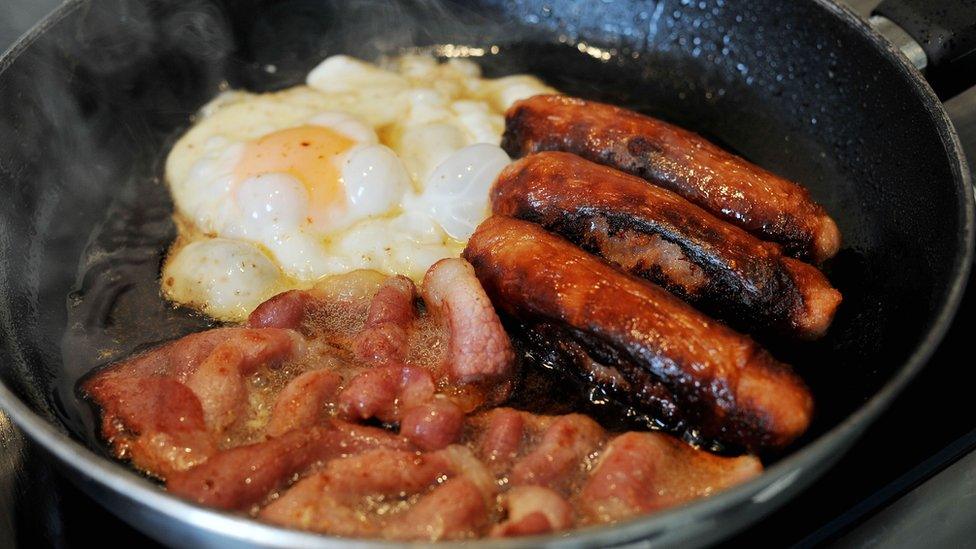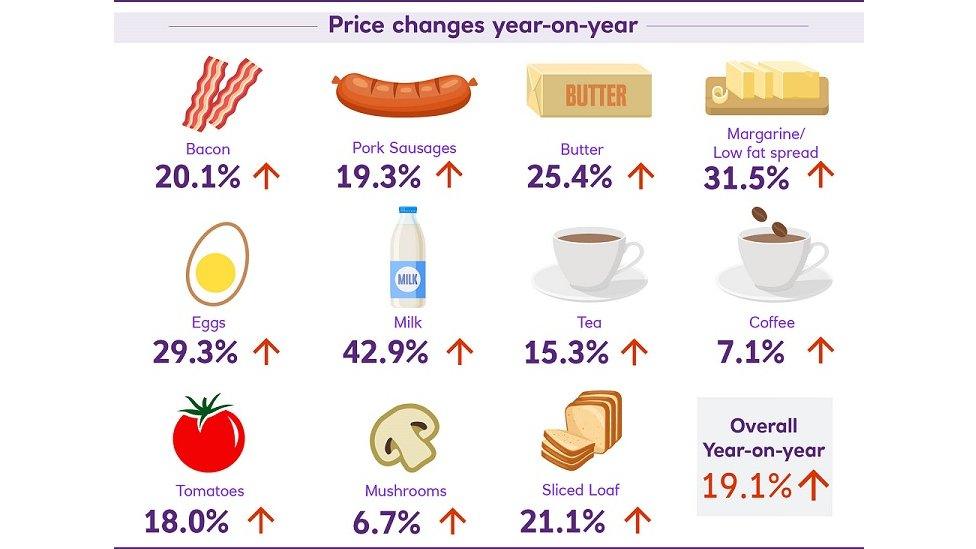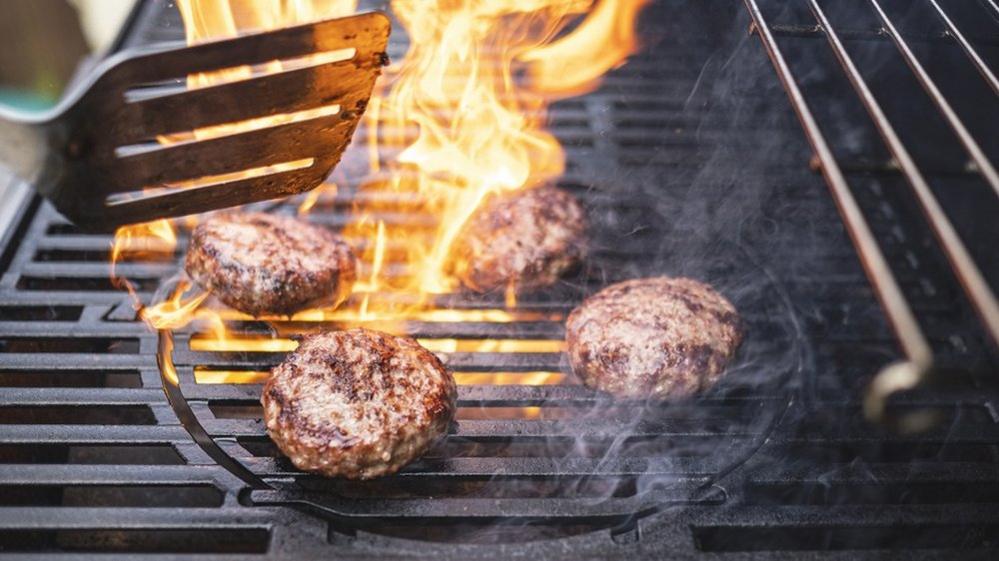Ulster fry Index: Breakfast prices soar due to inflation
- Published

The ingredients to make an Ulster fry have soared in recent months
The Ulster Fry is a staple breakfast for many, but the rising costs of its ingredients could mean it becomes more of a special treat.
Food costs have soared in the UK by 18% in February compared to 16.8% in January of this year.
The rise is due to a number of driving forces like geopolitical instability.
The Ulster Bank's Ulster Fry Index looks at the price of each item on the menu and compares it to the same time last year.
It found that overall, a fry is up by 19% with some individual ingredients rocketing.
Milk is up 42.9%, butter by more than 25%, and eggs are up by almost 30%.
'Squeezed'
Ulster Bank Chief Economist Richard Ramsey said: "If you rewind a year ago to the Russian invasion of Ukraine, that led to surge in energy costs. fertiliser costs, and animal feed costs.
"All of those things have worked their way through the system and that's feeding through into higher food prices today."
At the beginning of this week, the Organisation of the Petroleum Exporting Countries (OPEC) announced its members would cut oil production by more than 1m barrels a day. Oil prices rose in response - jumping by about 6% to $85 (£68) a barrel.
That rise in the cost of oil starts to filter into the price of fuel and home heating oil, with one tracker estimating that home heating oil jumped from £566 for 900l on Sunday, to £581 on Wednesday.

Food prices have gone up in the last year due to driving forces such as geopolitical instability
Richard Ramsey said food inflation hasn't peaked yet but "we've seen food prices rise over 18% in the last year".
"It took food prices 11 and a half years to rise by that same amount. That shows how dramatic the increase has been over the last 18 months", he added.
Most of the ingredients of the Ulster Fry arrive on the plate via a farmer, so dearer sausages and more expensive eggs are also a reflection of the squeeze on the agri-industry.
Richard Ramsey says "Farmers are having to pass those costs on and the supermarkets know that consumers household income is being squeezed so much. They're trying to beat down the prices of the food producers and the farmers.
"Everyone wants cheaper prices but the famers are the ones potentially getting squeezed."
Related topics
- Published18 January 2023

